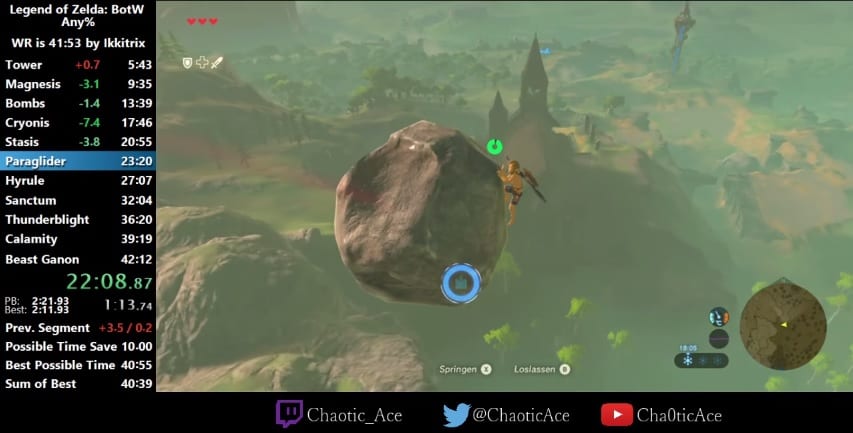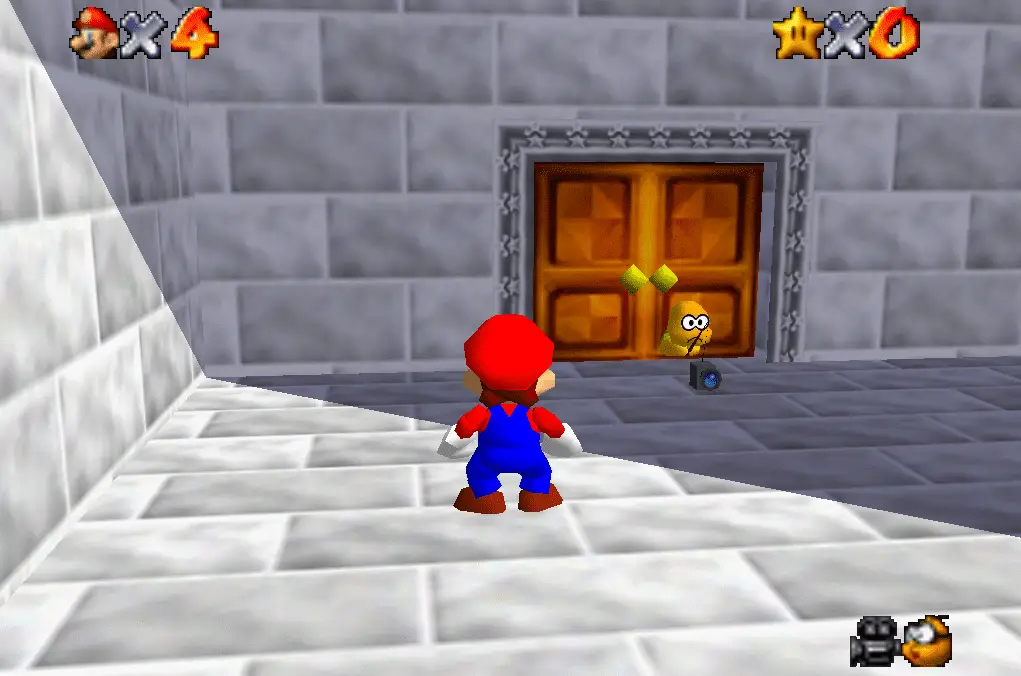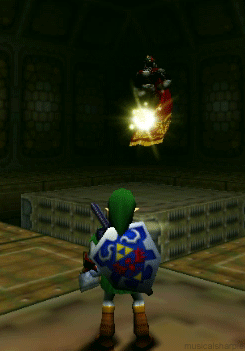Mass Effect Andromeda was unfairly maligned given the constraints! Bethesda took a giant shit all over E3’s stage! Nintendo just should get out of the console business!
It’s that magical time of the year when the atmosphere is full of video game hype…and reminding me how contentious most gaming fandoms can be. Not sure how I always forget given my years of posting in WoW forums, but holy god do strifes form and escalate at lightning pace. Let’s just attribute it to all those mechanical keyboard-users typing out their opinions faster than our mushy membrane TV-fans are capable of.
Look, I love fandoms. I adore them, even. But for video games, so much of the discourse surrounds actual gameplay, talent-levels of users, and mechanics—for good reason of course. But see, I’m quite consistently bad at most games I’ve picked up, unless we’re talking something like Myst, or Typing Tutor. So what I look for in games is more…“will I have fun faffing around for hours, or will I get bored?” Hell, my reason for playing WoW as long as I did was because I found a lot of it relaxing and liked exploring the map. (Though of course I was quite the prestigious raider for a time…amazingly right around the time I should have been paying more attention to my undergrad work.)
I’ve only therefore had limited interest in gaming fandoms, even if I could write at least four thousand words on Dutiful Princess Zelda. It’s not like gaming plots aren’t worthwhile or that people don’t want to talk about them, but it’s more that the *main piece* of video games, the act of actually playing them, holds the least amount of appeal for me. I’m just…disengaged. No danger of falling down the discourse well, right?
Well, if you’re anyone from a person who’s played Mario Kart at parties a few times to someone who’s logged 283 hours in Fallout New Vegas, I’m here to ruin your life. Because I found speedrunning, and goddamn if it isn’t the only fandom you’ll ever need.
First, let’s talk about what speedrunning is. Take a game, usually an older one, and try to beat it as fast as possible. The baseline “category” is that you just try to reach the end credits, and you don’t need to worry about missions, or points, or routes, or anything. Good ol’ “any%”. Go.

How exciting this is depends entirely on the game. I’ll admit that despite my love of the King’s Quest series, speedruns of King’s Quest VI: To Heir is to Human holds very limited appeal, since the challenge is simply…memorizing where to hover your mouse pointer and click. For 20ish minutes. Though interestingly the 20-minute run required for Prince of Persia is a far more engaging experience.
Other “categories” are possible, of course, beyond simple completion. Super Mario 64 is probably the most popular speedrunning game, but its any% involves exploiting a glitch where Mario infinitely long-jumps backwards, clips out of bounds, and shoots directly into Bowser’s chambers. A good run of this is 7 minutes long. For that reason, other categories exist, like the far more competitive 16-star route (the former any% before a specific glitch had been found), 70-star route (a way to beat the game without any major skips; this could be a “glitchless any%” in a way, though some routes do take advantage of the glitch I described for “0-star”), or the 120-star route (100% completion).
Oh yeah, glitches. See another aspect of speedrunning tends to be breaking the game’s intended mechanics.

Sometimes it’s fascinating, like how walls and barriers don’t full meet each other in The Legend of Korra (2014 video game), so if there’s an enemy positioned on an opposite side of a barier, you can make Korra teleport through with firebending. Sometimes it’s frustrating, like how in Wind Waker HD, a barrier skip to the castle was recently found, but now the fastest possible way to beat the game requires you to kill Link after defeating Puppet Ganon, proceed to “zombie hover” towards a ledge, and hopefully get healed by two fairies in pots that you break just before this happens. The catch? There’s maybe a 4% chance they’ll do it and it’s completely out of your control, it happens about 90% into the hour-and-a-half run, and each time a fairy doesn’t heal you, you lose something like 4 minutes.
Then there’s people who prefer to finish the game as fast as possible, yet using the intended game mechanics. Therefore you’ll find “glitchless any%” and “glitchless 100%” categories across a fair number of games. There’s even the occasional “bug limit” for people who want to use some glitches, but don’t want everything on the table, especially in the case where they allow a game to be beaten in say…17 minutes in a stupidly precise frame-perfect category, rather than one where runs take an hour longer yet doesn’t require the speedrunner to reset if they breathe incorrectly (*cough* IM/WW *cough*).
Finally, depending on the game itself, you might see unique categories that spring-up naturally. Goldeneye 007 has different records based on the different levels of difficulty. Breath of the Wild has alternatives to the 33-hour 100% category in the form of a far more reasonable 3-4 hour route through “all main quests”, or its “all shrines” route for those willing to put in over 8 hours each run.
But…why would you do this? Is it speedrunning seriously worth it in a world with so much new gaming content?
Well, speedruns are an avenue to see an old-favorite revisited in a different context, while also giving any game infinite-replay potential. You may be able to beat Ocarina of Time blindfolded at this point, but learning the most optimal route in the category of your choosing, along with moves that you probably didn’t know were possible to input for Link presents a whole new challenge.

As you get better at these moves, and more familiar with the route, you begin to see bigger windows of opportunity for improvement. You’re really only competing against yourself and your own “personal best” (PB), just like runners and marathoners, but yet there’s an inherent pressure of watching that clock. It’s perfect for someone like me who gets easily overwhelmed with PvP (and embarrassed of my own lack of skill), but who still wants to feel vaguely challenged and accomplished with gameplay. There’s also a lot of repetition in the learning process, which I’ve found to be constructive for anxiety, though that’s a whole other piece right there.
It’s relaxing without being lazy or sort of…lame. I can admit this now: how I enjoy most video games is lame. Speedrunning means I’m authentically cool. Right?
Now, if you’re really dang good at speedrunning, or just one of those people who wants to be the best, then yeah, ignore everything I said about this being relaxing and lower-key, while still giving you a challenge. Because chasing world records? That stuff can get intense.
Yet this leads to another aspect here: how do you go about speedrunning?
Like comics, there’s no wrong way. If you think it’d be fun to simply commit the 100% glitchless route through Great Bay Temple in Majora’s Mask to memory and mastery without bothering to learn anything else, then follow your dreams. And no, this is not at all based on my own experience. (For your information, I’m also quite adept at a fast Cycle 1 and a Goron-boost over fences.) But to even know what you want to try in the first place, there’s no better place to start than watching runs. Think of a game you might like to revisit, go to Twitch, and search for it. If there’s no live streamers, speedrun.com has an entire list of every game, leaderboards, and usually linked videos to runs that gamers submit.
Therein lays the basis of its fandom appeal, at least as far as I’m concerned: you don’t have to be a speedrunner yourself to be engaged with speedrunning. You might just hang out in a Twitch stream or two. Heck, you don’t even have to chat, though you’ll definitely the differences in atmosphere from stream-to-stream.
It’s really just a choose-your-own adventure/engagement level. If you simply want to watch masterful gameplay, that avenue is always open and heavily accessible. If you want to mess around with strategies yourself, there’s usually plenty of starter guides, or for more niche names, runners who’d be willing to help you out. If what fascinates you is route optimization or glitch-hunting, you’ll be hard-pressed to find a speedrunning community that wouldn’t want you. And there’s no anger at companies, or waiting on releases (except for people who rush to speedrun games close to launch). In fact, the more broken a game is found to be, the better.
It’s not that things can’t get heated, or that there aren’t personalities to avoid. I mean hell, ship wars are downright tame compared to amiibo discourse. (Seriously. There’s memes and overlords.) It’s just that because speedrunning is so encompassing and versatile, it’s easy to tailor to your specific interests and ideal gameplay. For me, that means a 16-star PB that I can’t get below 22 minutes, 10 failed attempts for every 1 success at an unbuffered gainer in Stone Tower Temple, and far too much knowledge about broken mechanics for games on systems I’ll never even own.
I invite you all to join me and do the same.

